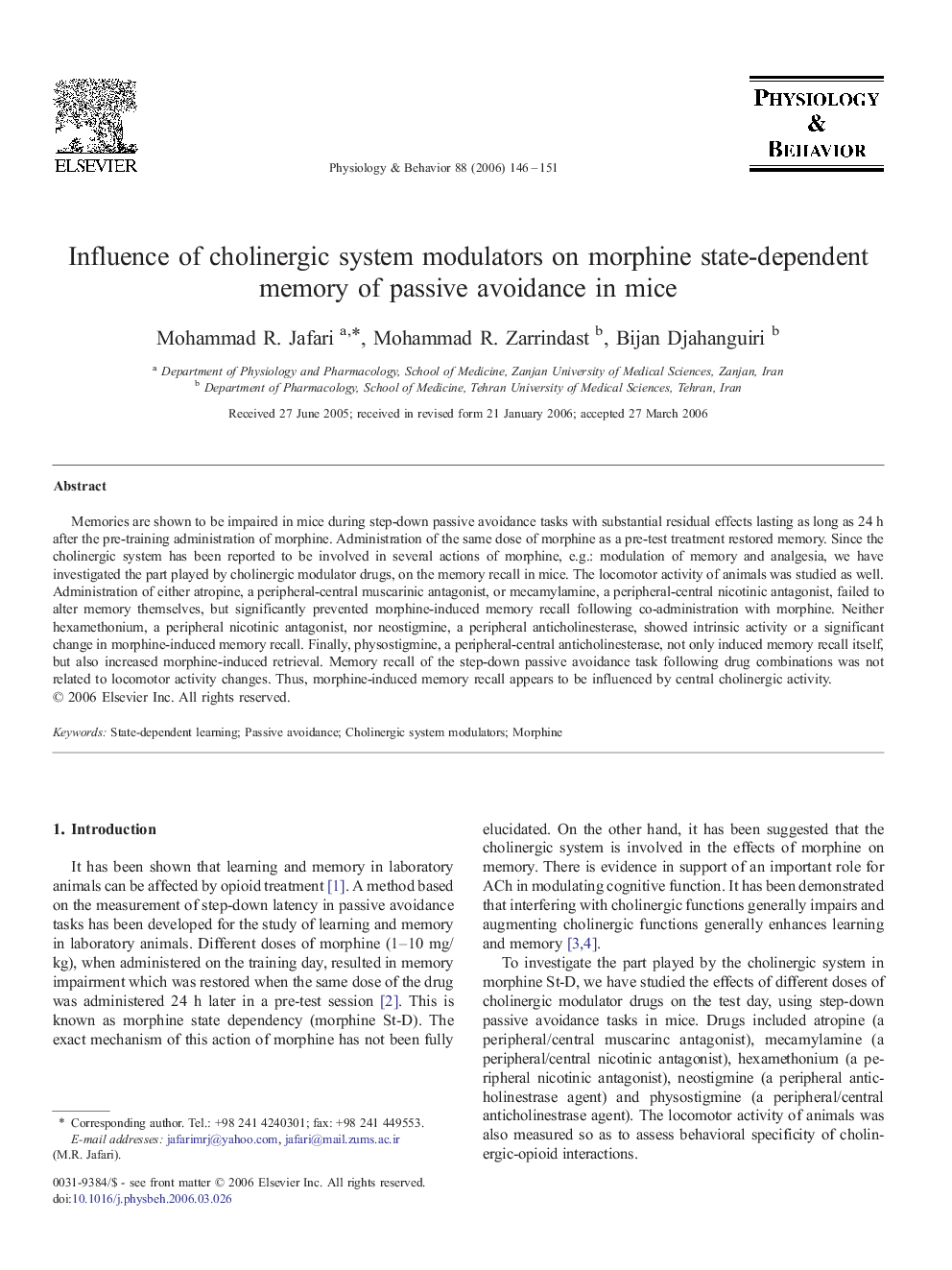| Article ID | Journal | Published Year | Pages | File Type |
|---|---|---|---|---|
| 2846404 | Physiology & Behavior | 2006 | 6 Pages |
Memories are shown to be impaired in mice during step-down passive avoidance tasks with substantial residual effects lasting as long as 24 h after the pre-training administration of morphine. Administration of the same dose of morphine as a pre-test treatment restored memory. Since the cholinergic system has been reported to be involved in several actions of morphine, e.g.: modulation of memory and analgesia, we have investigated the part played by cholinergic modulator drugs, on the memory recall in mice. The locomotor activity of animals was studied as well. Administration of either atropine, a peripheral-central muscarinic antagonist, or mecamylamine, a peripheral-central nicotinic antagonist, failed to alter memory themselves, but significantly prevented morphine-induced memory recall following co-administration with morphine. Neither hexamethonium, a peripheral nicotinic antagonist, nor neostigmine, a peripheral anticholinesterase, showed intrinsic activity or a significant change in morphine-induced memory recall. Finally, physostigmine, a peripheral-central anticholinesterase, not only induced memory recall itself, but also increased morphine-induced retrieval. Memory recall of the step-down passive avoidance task following drug combinations was not related to locomotor activity changes. Thus, morphine-induced memory recall appears to be influenced by central cholinergic activity.
